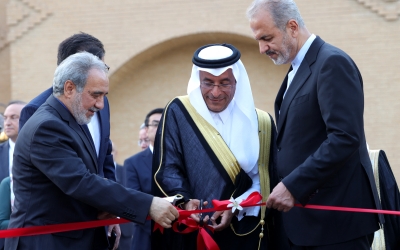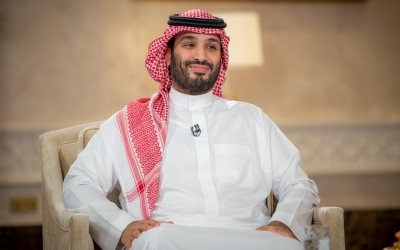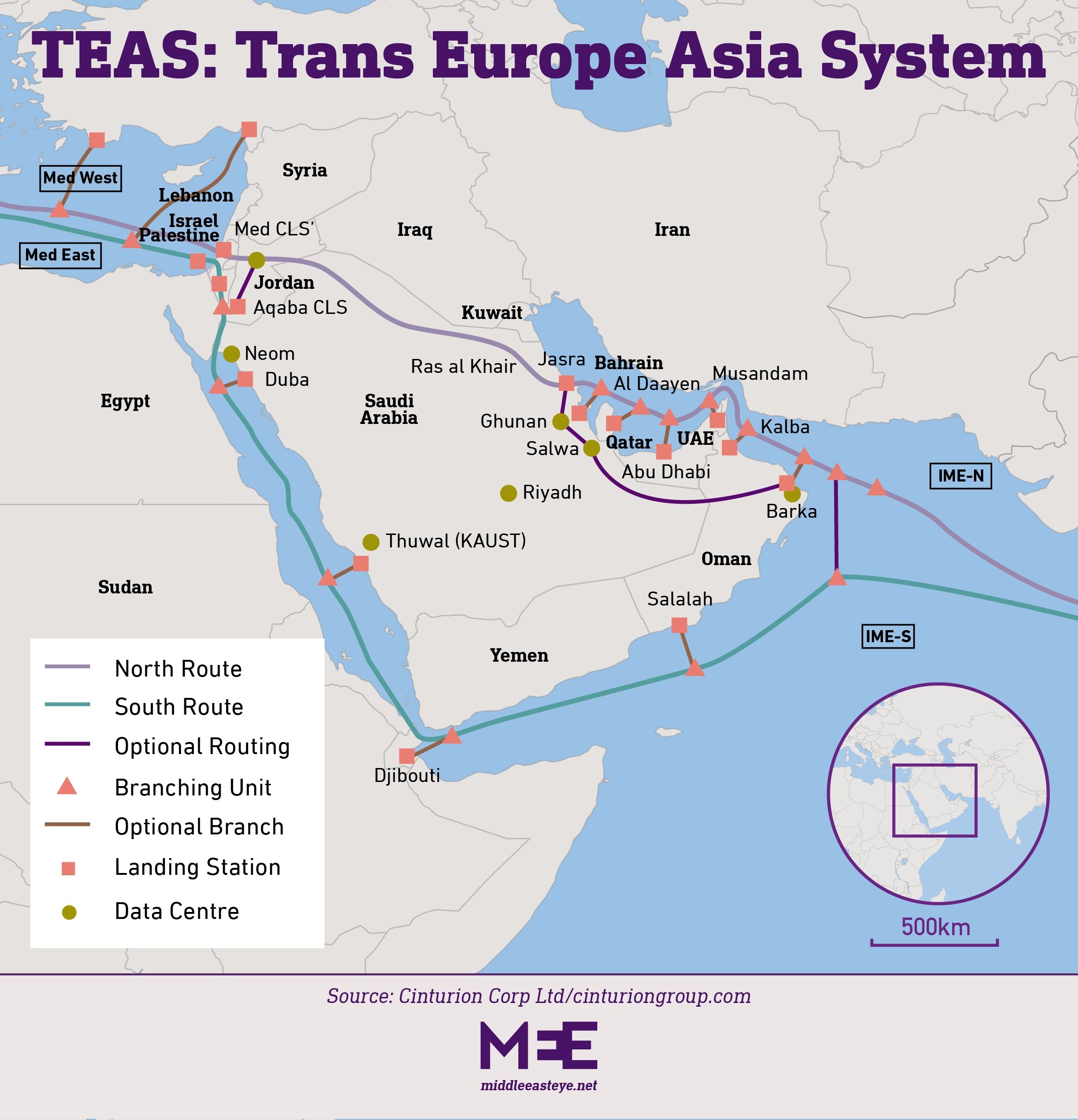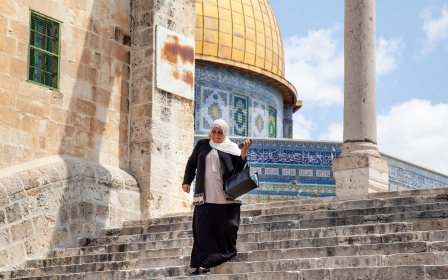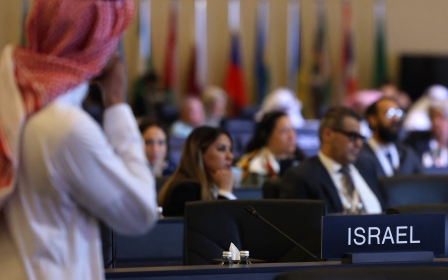Five ways that Saudi-Israeli normalisation is already here
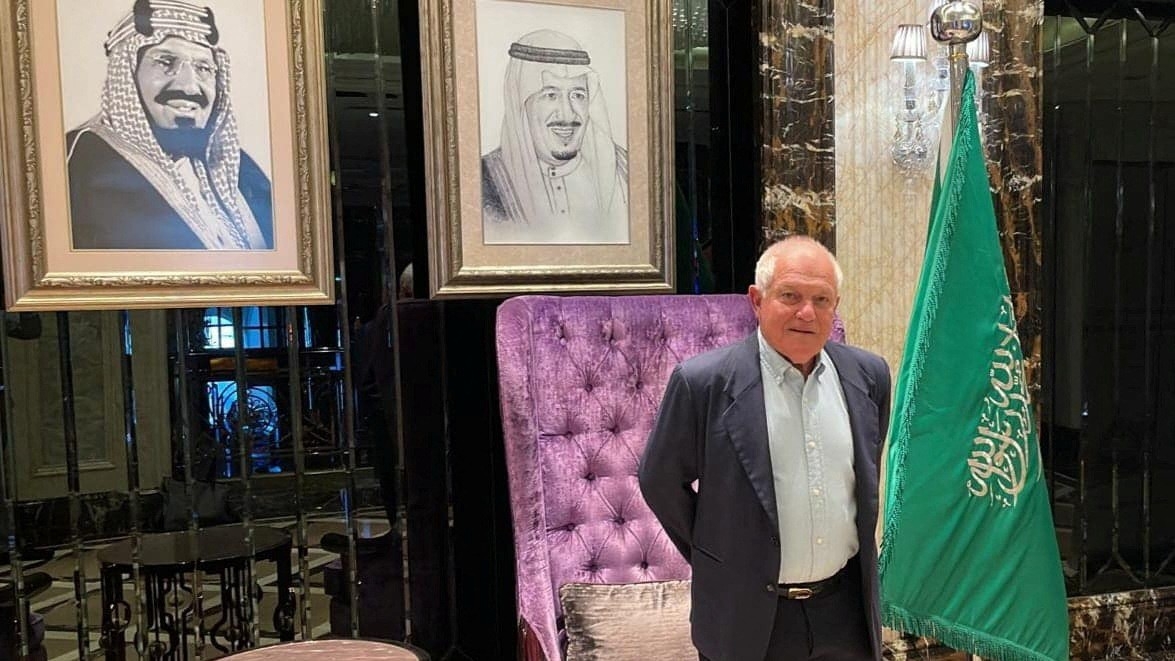
While the timing of a potential deal normalising relations between Saudi Arabia and Israel remains unknown, talk of such a move is rapidly gaining momentum.
Asked last week how close a deal was, Saudi Crown Prince Mohammed Bin Salman said: "Every day we get closer."
But Saudi Arabia has long maintained that it wouldn't normalise ties with Israel until Palestinians got their own state - a reality that is even more unlikely under Israel's current far-right coalition government.
In recent months, US President Joe Biden's administration has spearheaded efforts to strike a deal between Saudi Arabia and Israel, which would have Riyadh follow in the footsteps of the United Arab Emirates, Bahrain, Morocco and Sudan, who normalised ties in 2020 as part of the so-called Abraham Accords.
But members of Prime Minister Benjamin Netanyahu's coalition have rejected any serious concessions to Palestinians, including the freezing of illegal settlement construction on occupied Palestinian land.
New MEE newsletter: Jerusalem Dispatch
Sign up to get the latest insights and analysis on Israel-Palestine, alongside Turkey Unpacked and other MEE newsletters
As such, an official Saudi announcement may yet be far off.
But despite having no official ties, Saudi Arabia and Israel have forged and maintained relations across a number of areas over the past decade.
Often covert, but increasingly public, representatives from the two countries have held meetings and cooperated on defence, technology, trade routes and airspace.
That has included Saudi Arabia buying Israeli-made spyware to reportedly hack opponents' phones, military cooperation to repel a common enemy in Iran, and the rollout of fibre optic internet cables linking the two countries.
Middle East Eye takes a look at five ways the normalisation of relations between the two countries is already under way.
Saudi and Israeli officials meeting
A string of meetings between Saudi Arabian and Israeli officials, sometimes clandestine, have been reported for several years now.
It began with mostly recently-retired officials coming together.
In 2015, an incoming director general of the Israeli foreign ministry publicly shook hands with a retired Saudi general and former adviser to the kingdom.
That was followed a year later by Prince Turki al-Faisal, a former intelligence chief and Saudi ambassador to Washington, sharing a stage with Yaakov Amidror, a former general and ex-adviser to Prime Minister Benjamin Netanyahu.
'MBS is trying to see how the reaction is among the Saudi population'
- Andreas Krieg, analyst
Later that year, another retired Saudi official, General Anwar Eshki, led a team of businesspeople and academics to a meeting with Israeli foreign ministry officials and Israeli members of parliament in Jerusalem.
It's highly unlikely that such a trip would have gone ahead without Riyadh's approval.
In November 2017, then-Israeli energy minister Yuval Steinitz became the first senior official to confirm covert contact between the two countries.
When asked about ties with Riyadh, he responded: "We have ties that are indeed partly covert with many Muslim and Arab countries, and usually [we are] the party that is not ashamed.
"It's the other side that is interested in keeping the ties quiet. With us, usually, there is no problem, but we respect the other side's wish, when ties are developing, whether it's with Saudi Arabia or with other Arab countries or other Muslim countries, and there is much more... [but] we keep it secret."
For Andreas Krieg, assistant professor at King's College in London's defence studies department, the steady stream of meetings is part of Saudi Arabia "playing the long game" for normalisation.
"This is a strategy of trial and error where they take a lot of smaller tactical approaches to achieve the ends," Krieg told MEE. "There's a lot of testing waters."
Clandestine official contact peaked in 2020 when Netanyahu himself reportedly met with Mohammed bin Salman in the new Saudi megacity Neom.
The Israeli premier was joined by Israeli military, national security and intelligence chiefs, as well as then-US Secretary of State Mike Pompeo.
The meeting was thought to have been deliberately leaked to media by the Israeli side.
"The Israelis also use this domestically, particular the Netanyahu government, to show that they are making progress, that they have something to show for themselves," said Krieg.
Delegations
While some visits and meetings have been secret, there has been an uptick in public delegations and visits on either side.
In 2019, Mohammed Saud, a self-styled Saudi blogger and vocal admirer of Israel, went on a trip to Israel and Palestine officially sponsored by Israel's foreign ministry.
Saud, who has called for normalisation between the two countries, was chased out of Al-Aqsa Mosque in occupied East Jerusalem by Palestinian residents, who called him "trash", "cheap" and "Zionist", and spat in his face.
On the other side, Israel's Channel 13 military correspondent, Alon Ben-David, travelled with a non-Israeli passport to the Saudi capital in July 2022, to gauge Saudi reactions to his presence there as an Israeli.
He said he received a mixed reaction, and that normalisation was "going to be much slower with Saudi Arabia".
In recent weeks in particular, publicised Israeli delegations to Saudi Arabia have picked up pace.
Last month, three Israelis competed in an international e-game tournament in Riyadh, arriving in Saudi Arabia using Israeli passports.
During rehearsals for the opening ceremony, the three were filmed singing the Israeli national anthem and holding an Israeli flag. The Saudi organisers subsequently decided not to broadcast national anthems during the main event.
Days later, Israeli officials embarked on their first publicly announced delegation to Saudi Arabia.
A five-member contingent arrived for a Unesco meeting - the UN's cultural agency - to update the world heritage list of cultural and historic sites.
"We are happy to be here - it's a good first step," an Israeli official told AFP in what appeared to be a reference to normalisation.
That was followed this week by Tourism Minister Haim Katz becoming the first Israeli minister to formally visit the kingdom to attend the United Nations World Tourism Organization (UNWTO) conference.
"The main reason that the talks are no longer secret is due to the political interests of Biden and Netanyahu," Michal Yaari, Gulf states researcher at the Hebrew University of Jerusalem, told MEE.
"[They] hope that the agreement between Israel and Saudi Arabia will improve their public standing."
Krieg adds that Saudi Arabia's crown prince will be judging the public's reaction to more open signs of relations between the two countries.
"[He's] trying to see how the reaction is among the Saudi population, [and] Muslims and Arabs more widely," Krieg said. "What we're seeing at the moment is the normalisation of normalisation."
But Krieg stressed that such overtures did not necessarily mean full-scale normalisation was imminent, with several sticking points yet to be resolved, including Palestinian concessions.
"You can have interactions with Israeli dignitaries and even allow Israelis to join an international conference in your country. But that doesn't mean necessarily you're going to normalise with Israel."
Defence cooperation
Several of the past meetings between Saudi and Israeli officials have centred around their common regional rival, Iran.
Last year, Israeli diplomatic and security officials told MEE that they were engaging in talks with the UAE, Bahrain and Saudi Arabia to install a joint defence programme against the threat of drones.
The initiative, backed by Washington, was part of a coordinated effort to repel Iran and its proxies in the region, including Yemen's Houthis.
In March, a high level meeting between Israeli and Saudi military officials took place in the Egyptian resort town of Sharm el-Sheikh, according to the Wall Street Journal.
Delegations from Qatar, the UAE, Bahrain and Jordan were also present, as well as a former head of the US Central Command.
The participants reportedly struck a non-binding agreement to coordinate rapid notification systems in the event of detecting an aerial threat from drones or ballistic and cruise missile attacks.
'Israel's capabilities and its proven ability to face Iran made it a crucial ally'
- Michal Yaari, researcher
"Israel's capabilities and its proven ability to face [Iran] made it a crucial ally for some Gulf states," said Yaari. "This is how Israel turned from 'the problem of the Arab world' into an important ally."
Saudi Arabia restored ties with Iran in March this year, after a seven-year fallout - a development that likely did not please Israel.
But Krieg notes that several elements of the Iranian "deep state", including the Iranian Revolutionary Guard Corps and proxy networks involved in Iraq and Yemen are still a bone of contention for Riyadh.
"We shouldn't interpret too much into that normalisation," said Krieg. "There's still a lot of mistrust."
An alliance against Iran is not the first report of defence coordination between Saudi Arabia and Israel.
In July 2015, MEE editor-in-chief David Hearst outlined in a comment piece the links between Saudi Arabia, Egypt and Israel that seek to "crush" the Palestinian group Hamas.
Saudi Arabia's ambassador in the UK criticised Hearst for the piece, accusing it of being "baseless lies".
But Debkafile, a news site known to be close to the Israeli intelligence agency Mossad, substantiated many of Hearst's assertions on the emergence of a Saudi-Israeli alliance against Hamas in Gaza.
Technology and trade
There have been signs of covert business activity too, particularly in the technology sphere, as well commitments to collaborate more openly in future.
In a move repeatedly maligned by human rights and digital activists, Saudi Arabia is an alleged purchaser of Pegasus, the notorious spyware made by Israeli company NSO Group which has been used to hack the phones of political opponents.
Riyadh first purchased the software in 2017 for $55m, after a small team of Israeli defence officials took part in a secret dialogue with Riyadh, according to a New York Times report.
Israel's defence ministry declined to renew Riyadh's licence for the spyware following allegations it used Pegasus to track MEE columnist Jamal Khashoggi before he was murdered by Saudi agents in October 2018.
However, after Mohammed bin Salman directly called Netanyahu, the licence was renewed. Netanyahu denies the reports.
Elsewhere, an Israeli technology firm, IntuView, said that it had worked with Saudi Arabia to surveil "potential terrorists". It also scanned Saudi citizens' data to help define the kingdom's Vision 2030 economic diversification strategy.
The company's founder said he set up an offshore company to hide its Israeli identity.
There are longer term ambitions too: MEE revealed in April that a proposed fibre optic cable linking Saudi Arabia and Israel, backed by a major Israeli investment fund, was "gaining traction" in Riyadh.
The 20,000 km cable, known as the Trans Europe Asia System, would also run through the UAE, Bahrain, Qatar and Oman - as well as Jordan and Palestine on a route between Marseille in France and Mumbai in India.
Sources in the cable industry told MEE that the project had gained favour in Riyadh and was also being backed by the US government.
A submarine cable consultant said the Israeli-Gulf connection had not been disclosed more openly because "the mere mention of Israel is very sensitive".
In another future project linking the two countries, Israel also announced a $27bn rail expansion which seeks to reach the Gulf kingdom.
"In the future... we will also be able to link Israel by train to Saudi Arabia and the Arabian peninsula," Netanyahu said in July.
Airspace
Flight paths and airspace has provided another area of friendliness between the two countries.
In July 2022, Saudi Arabia announced that it would open up its airspace to all civilian flights. It had previously barred overflights from Israeli and non-Israeli companies travelling to or from Israel.
The announcement was made just hours after Biden flew directly to Saudi Arabia from Israel.
Since the decision, flights to and from countries such as India and China to Israel have been allowed to pass over the Saudi peninsula, cutting hours of flight time and significant amounts of fuel.
Last month, an Air Seychelles flight heading to Tel Aviv made an unscheduled landing in Saudi Arabia after it faced technical issues. The 128 Israelis on board spent the night in the Saudi coastal city of Jeddah.
It's thought to be the first time an Israel-bound commercial flight has been permitted to land in Saudi airspace.
"I am very much appreciative of the warm welcome by Saudi authorities to the Israeli passengers whose plane faced difficulties and was forced to land in Jeddah, and I'm happy that everyone is coming home," Netanyahu said at the time.
Omani authorities followed suit and opened up their airspace to Israeli airlines in February.
Up until that point, even with Saudi airspace being made available, Israeli airlines had been unable to open a corridor for longer haul flights to fly over the kingdom, and therefore had to continue bypassing the Arabian peninsula.
In another move towards normalising ties, Israel is negotiating with Saudi Arabia to allow Palestinians with Israeli citizenship to fly directly to the kingdom to perform the Hajj and Umrah religious pilgrimages. A deal has yet to be struck.
Middle East Eye delivers independent and unrivalled coverage and analysis of the Middle East, North Africa and beyond. To learn more about republishing this content and the associated fees, please fill out this form. More about MEE can be found here.


